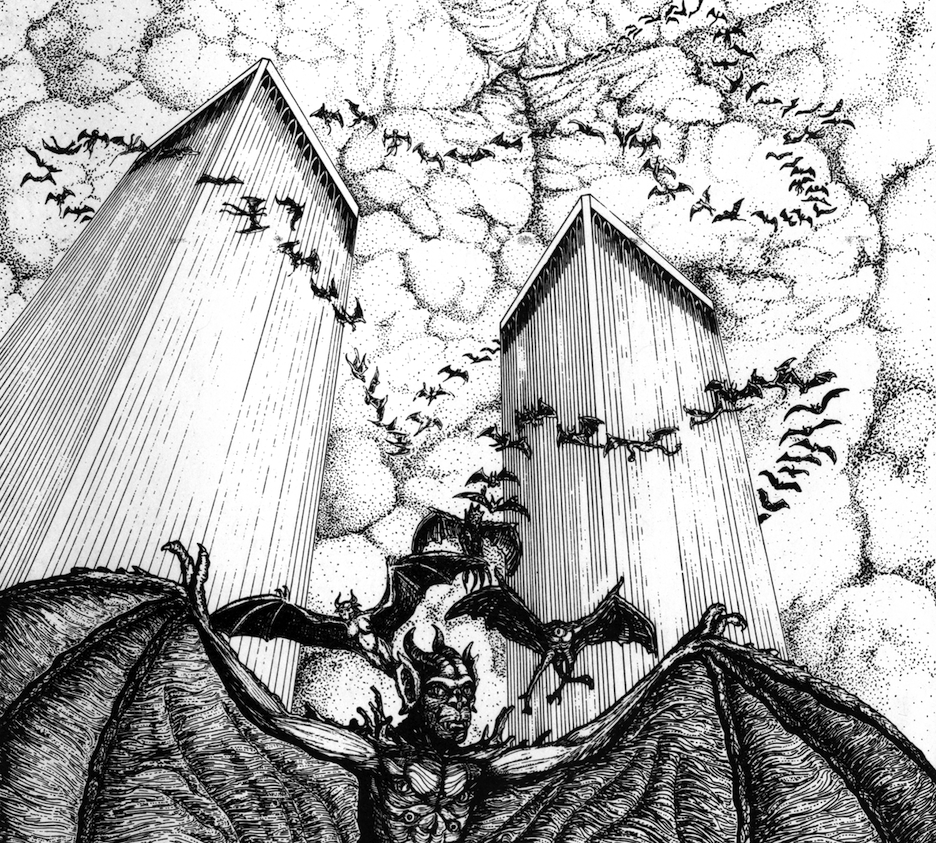I have written essays on both the first and tenth anniversaries of the 9/11 tragedy. You can read both by clicking this link. On this 20th anniversary of what I still consider to be a prime example of the murderous madness of theism, I note without surprise that, over these two ensuing decades, ongoing acts of terror—of lesser scope and scale—have been perpetrated for a panoply of motivations. Terrorism, as opposed to the more formal aggression of declared and fought wars, is specifically directed at people simply going about their lives, whose sacrifices have done little to raise anyone’s consciousness as to why our society might consider moving to an overall rejection of violence as a solution for disagreements. Formal wars decimate non-combatants, but when nations contend with one another there is a consciousness that extreme violence might be visited upon those involved in such proceedings. The current political polarization of global civilization with authoritarians taking, or being voted into, positions of power wherein repression of dissenting individuals can be set into crushing action is sadly ever more the status quo. It would be wise to be ever alert to the possibility that one’s life could be subject to violent disruption caused by other humans in their efforts to remake societies to reflect their values. Nature often brings catastrophe to we Epimethean primates, but we are likely damned towards being eternally, enthusiastically self-destructive.
Various forms of nationalism, racism, efforts to preserve past status in societal flux, hatred for anyone who is “other”—whether the object of fear and disgust be found in the areas of belief, politics, sexuality, race, ethnicity, culture—are all active motivating factors towards virulent opposition, inspiring newly minted Jihads and Crusades, both religious and secular. If anything, the success of an “undomesticated” branch of theist belief—currently deemed “Islamist”—in their destruction of American structures 20 years ago killing thousands has spurred other belief systems to move from more civilized discourse towards power grabs intended to inflict their perspectives on others who do not embrace their predilections and delusions. Such strong-arming can also arise via manipulation of electorates, which often is not noticed, since overt violence is not visible in establishing new parameters for oppression of those who are despised by those seeking hegemony.
Our species may simply be incapable of transcending our past behaviors. “Ultra-violence” is part of what defines “humanity” from all historical evidence. To reach a more balanced and considered position, wherein individuals might find rational means for settling differences and achieving satisfaction—fulfilling personal goals and productive exchanges with those whom we choose to engage—may truly be a pipe dream for we “inhumane” humans. That IS perhaps something to be mourned—beyond the uncountable deaths of the victims who were not formally at war with others, but whose continued living was determined to be contrary to someone’s goals for dominion.
The great American composer Christopher Rouse—who died in 2019 after completing a powerful Symphony No. 6 which is a reflection on his life and the death he knew was fast approaching—wrote his most massive work, a Requiem, which was completed after the 9/11 events. He was in New York City on that shocking day and you can read about his work here. Rouse was paying homage to other requiems by past composers, and essentially was offering a musical experience intended to bring solace to the listener dealing with a welter of emotions arising from the death of a loved one or even contemplating their own demise. It certainly can function as a means for reflecting on that dark day and its aftermath—and the turbulent society in which we are currently enmeshed. Rouse’s Requiem is lengthy, about 90 minutes, but his pithy Symphony No. 6 is short of a half hour, and either might serve as a means for musing upon the nature of the beast called man on this anniversary of brutality.
—Magus Peter H. Gilmore (9/11/21 C.E.)
Image: Cover of Grue Magazine, No. 2 (1985). Pen and Ink drawing by Peter H. Gilmore (detail)

